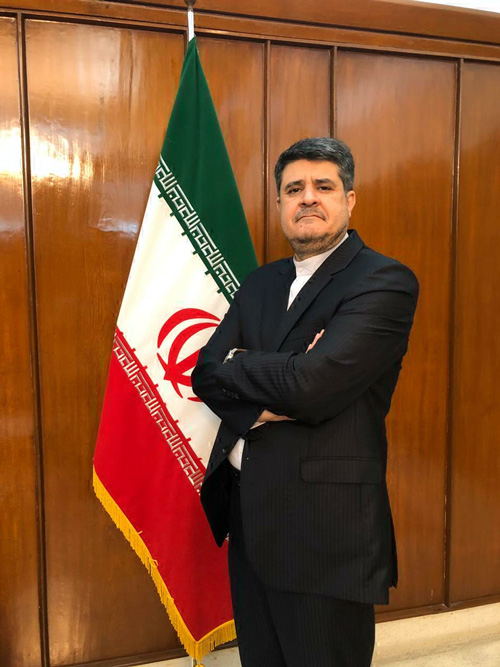Ahmad Muhammadi
Exit from the Join comprehensive Plan
of Action (JCPOA) by the US is now
in to its second year. The JCPOA is an international agreement which was the result of Iran’s years of several talks with the P5+1 countries. It is considered as one of the most unparalleled diplomatic measures which came as a welcome development for the experts and the world public opinion for resolution of the lingering issue of Iran’s nuclear program and showed that logical-talks bring logical results.
The UN General Assembly welcomed the agreement and its Security Council abrogated its sanctioning resolutions against Iran, besides removing Iran’s nuclear issue from chapter 7 of the UN charter. It was for the first time in the world that the issue of a country was removed without resorting to use of power and war measures and only through negotiation and consent.
Unfortunately, before long, the US administration unilaterally exited from this international agreement. This exit was actually a plan that Donald Trump had in his head since the start of his presidential election campaign. On 08 May, 2018, the Trump administration, on baseless pretexts, exited officially from the JCPOA and announced reimposition of the unilateral and illegal sanctions against the proud nation of Iran. These sanctions are into its second year and are continuing even when Iran is badly hit by the coronavirus pandemic, hindering Iran’s war against this deadly virus and endangering the lives of people as well as those of medics and paramedics.
Exit from the JCPOA is not the sole example of trump’s backing out from international agreements. This administration has a dark record of non-adherence to international treaties and use of threat and stoppage of its share in funding as a tool for imposing its demands on international organizations. In addition to exit from the JCPOA, other examples of his turning back from international commitments are asunder:
· Taking back signature of the Obama administration for joining the Paris Climate Treaty.
· Abstention from approval of the free trade agreement among countries of the Pacific Ocean region.
· Threat to withdrawal from NAFTA Free Trade Agreement with Mexico and Canada.
· Exit from UNESCO.
· Recognizing Bait-Al-Moghddas as the capital of Israel regim and moving the US embassy to this city .
· Departure from the UN Human Rights Council.
· Backing out from UNRWA (United Nations Relief and Works Agency for displaced Palestinians).
· Threatening the judges of the International Penal Courts with sanctions and pressurizing the Security Council of UN to impose restrictions on this court should it start investigation into the case of US war crimes in Afghanistan.
· Exit from the Treaty of Amity, Economic Relations and Consular Rights 1955 with Iran.
· withdraw from the “optional protocol” under the 1961 Vienna Convention of Diplomatic Relations.
After exit from the JCPOA , the US administration offered to Iran to start a fresh round of talks with it on various issues, so that, with its own supposition, it could come to an agreement with Iran on all issues. The leaders and the public opinion of the Islamic Republic of Iran strongly rejected this offer, as they believe that the unilateral exit of a government from international agreements makes this government completely unreliable. Is there any guarantee that the new round of negotiation and the new subjects of talks will not meet the fate of the JCPOA?
After passage of two years after the US unilateral exit and reimposition of illegal sanctions and repeated threats against the sovereignty of the Islamic Republic of Iran and its people, there is room that the independent countries of the world take it upon themselves as a duty to compel such governments to abide by international laws and commitments. Such efforts are inevitable to prevent the international chaos and surely be registered as a good action in the memory of the international relations.










